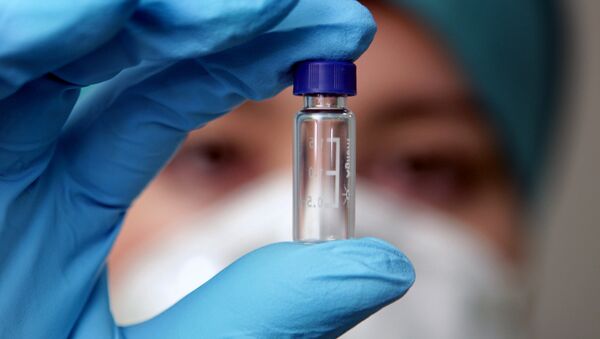Estonia's plan may lead to the creation of one of the first large-scale systematized collections of human genomes. The 100,000 citizens, who will supply their blood samples, representing almost 8 percent of Estonia's 1.3-million population. The participants of the program will receive health and lifestyle advice from specialists.
Similar private services exist elsewhere in the world, and the UK National Health Service offers predictive genetic tests for cancer risk genes. However, in case of NHS, the eligibility for such testing depends on the family history.
READ MORE: Russian Scientists Decipher Part of 'Immortality' Enzyme
Scientists could learn more about a person's predisposition to different types of cancer, diabetes, heart disease by looking at their genome, professor Miikka Vikkula, a geneticist at the de Duve Institute of the Belgian Universite Catholique de Louvain, told Sputnik.
"A key element for such a DNA collection is the identification of rare diseases. There are some 5,000 rare diseases, and in Europe, they affect millions of people. Often these rare diseases have a genetic cause, but doctors don’t immediately identify them because not all symptoms are present. For vascular embolism, for example, gene mutations give malformation syndromes that lead to certain types of cancers," the expert said.
READ MORE: Scientists Finally Decipher DNA of Tiny 'Alien' Found in South American Desert
Large collections of samples would allow analyzing the recessive illnesses, which are passed from one generation of a family to another depending on genes' combinations. Such collection would help study diseases that occur in some populations and explain why they are not present in other places, Vikkula said.
The Belgian scholar added that the genome, if taken at birth, could be studied at different points during a person's life.
"You can detect some predispositions immediately, but doctors will also be able to come back to the genome later in life, when knowledge will have increased. Data are often difficult to interpret," the scientist said.
Dr. Fransiska Malfait, a geneticist at the University of Ghent, also pointed out that genetics was developing at a fast pace, and the predictive capabilities of the discipline could grow over time.
READ MORE: Idiocracy in Action: Biologist Reveals Why the Human Gene Pool is Becoming Worse
The expert noted the importance of collecting data from the whole family, as it would provide a fuller picture, citing a famous Genome of the Netherlands (GONL) study.
However, according to Malfait, the new opportunities would pose serious ethical questions before doctors.
"It is of course morally difficult to tell a person that she will probably develop a form of breast cancer that cannot be avoided and still has an 80 percent risk of killing her. It will heavily impact her life from then on. I don't know how Estonia will deal with this question," the geneticist said.
The Estonian government has allocated 5 million euros ($6.1 million) to fund the project throughout 2018. The online portal which hosts a special consent form was launched on March 20, while the collection of samples began on Monday.
The views and opinions expressed by experts do not necessarily reflect those of Sputnik.

